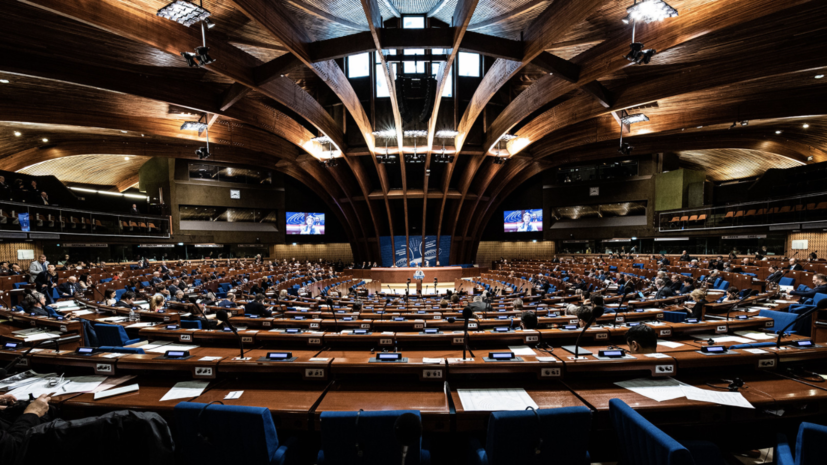Deputies of the Parliamentary Assembly of the Council of Europe (PACE) confirmed the credentials of the Russian delegation at the winter session.
107 parliamentarians voted for the resolution, 36 against, 24 abstained.
In addition, in the process of preparing the draft resolution, 11 amendments were made, including a paragraph proposing not to confirm the credentials of the delegation and providing for the postponement of the consideration of the issue to the June session.
Parliamentarians voted against both amendments.
Earlier, the head of the Ukrainian delegation, Maria Mezentseva, made a proposal to challenge the powers of the Russian delegation in essence.
This was followed by a vote, at which the initiative of the Ukrainian parliamentarians received the support of 38 participants in the meeting from five national delegations, which was sufficient to transfer the issue to the PACE committee.
Subsequently, the PACE Monitoring Committee adopted a draft resolution in which it recommended confirming the powers of the Russian delegation.
According to the results of the committee's meeting, State Duma Vice-Speaker Pyotr Tolstoy, "the meeting went well."
Commenting on the decision to confirm the powers of the Russian delegation, Anton Morozov, a member of the State Duma Committee on International Affairs, drew attention to the number of those who voted against, as well as abstained.
“That is, Russia, firstly, is the largest European state, and to discuss the European agenda without the participation of Russia, in my opinion, is completely counterproductive.
Secondly, Russia is one of the largest donors to the organization.
Of course, we positively assess the decision, "Morozov said in a conversation with an RT correspondent.
Also, the deputy, commenting on the attempts of the Ukrainian delegation on January 25 to challenge the powers of the Russian delegation, said that such rhetoric is perceived in Europe "as a hackneyed record."
“They cannot offer anything new in terms of their argumentation, therefore this position causes more and more irritation among other delegations,” he concluded.
The head of the State Duma committee on international affairs, a member of the delegation, Leonid Slutsky, noted that the confirmation of the powers of the Russian Federation in PACE speaks of the organization's readiness for dialogue.
“All amendments by Ukraine and the Baltic countries demanding not to ratify the mandate of the Russian delegation were overwhelmingly voted down.
This means that the assembly is not going and is not going to follow the aggressive Russophobic minority and is ready for dialogue with the largest country on the European continent, "Slutsky wrote in his Telegram channel.
As the parliamentarian noted, as a result of the decision made, Russia retains its presence on the site and "will continue to consistently communicate its position to European colleagues directly."
Natalya Eremina, Professor of the Department of European Studies at the Faculty of International Relations, St. Petersburg State University, called the positive decision on Russia's participation in the PACE winter session expected, noting the constructive contribution of the delegation to the work of the Assembly.
"Our participation in many meetings is due precisely to the fact that Russia always proposes a constructive agenda, and Russia's withdrawal from the discussion of issues related to modern international relations, security issues, issues of conflict resolution, it is now superimposed on the agenda related to medicine and healthcare." , - said Eremina in an interview with RT.
The expert noted that Russia has vaccines against COVID-19, which are currently one of the important elements of international cooperation.
“The interests of these countries are connected with Russia, this is the solution of the energy issue, and Germany says that it is necessary to interact in the field of medicine, and, in particular, to resolve the issue of vaccines,” the expert concluded.
Recall that in 2014 Russia was deprived of some of its powers in PACE in connection with the events in Ukraine and the reunification of Crimea with the Russian Federation.
Since the powers were not returned, since 2016 Russia stopped participating in meetings, and later reduced contributions to the organization's budget.
Russia returned to work in PACE in June 2019.
This became possible after a change in the organization's rules: Moscow demanded that the right to vote, speak and be represented in the assembly and its bodies was undeniable.
Subsequently, the members of the Parliamentary Assembly of the Council of Europe elected the representative of the State Duma Pyotr Tolstoy as vice-speaker of PACE.

